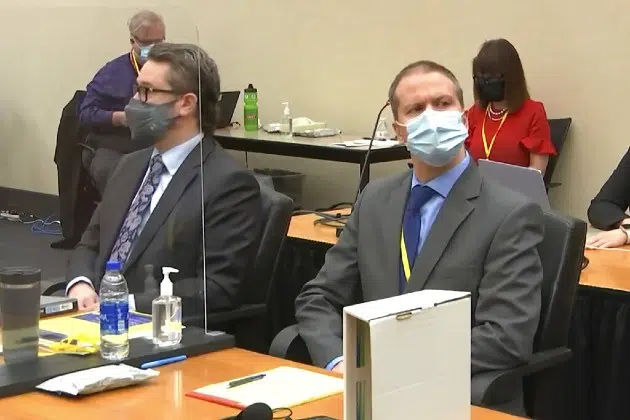(KNSI) – Witness testimony in the case against a former Minneapolis Police officer accused of killing George Floyd in May of 2020 has come to an end.
The judge in the case against Derek Chauvin will soon give the jury its instructions on Monday.
KNSI News asked Attorney Mike Bryant, managing partner of Bradshaw and Bryant, what to look for during the judge’s instructions.
“The big issue is going to be whether or not they give the third-degree murder charge. That one’s the one that got pushed off to the end of trial to decide if they’re going to bring it.”
Prosecutors initially charged Chauvin with manslaughter, third-degree and second-degree murder.
The judge threw out the third-degree charge. That’s the same charge former Minneapolis Police Officer Mohamed Noor was convicted of when he shot and killed Justine Damond in July of 2017. He was sentenced to 12 and a half years in prison.
After the court of appeals upheld Noor’s conviction, the charge was free to be reinstated.
The Minnesota Supreme Court has agreed to hear the Noor case.
Traditionally for the depraved mind statute to met in a third-degree murder charge, more than one person needed to be in danger. Examples are drug dealers who sell a possible lethal mixture to people or someone who shoots a gun into a crowd of people.
In the Chauvin case, no one is arguing that anyone besides Floyd was in danger, and Bryant says there’s a chance a Supreme Court ruling could affect the Chauvin case.
“Your concern is how do you read the jury instruction right now, under the possibility the Supreme Court could change it. And that’s the danger. So I wonder if the defense sits there and says, if they ask for it, we won’t fight it. And if nothing else, we might have some way to appeal this later on.”
Bryant says the prosecution needs to use closing arguments to drive home two points.
“Did the defendant act outside of what a reasonable police officer would do? Because that’s the standard. It’s not just an ordinary standard. It’s a police officer standard, he has to be acting unreasonable, and because of those actions, it had to have caused death, and those are the keys.”
Then it’s the defense’s turn.
“The defense is going to go through and argue why they didn’t prove it. You know what the other questions out there now. The defense doesn’t have to prove anything. All the defense has to do is get there to be questions that you can’t answer beyond the reasonable doubt.”
After closing arguments and jury instructions on Monday, the jury will be sequestered until they reach a verdict or declare they’re hopelessly deadlocked.






